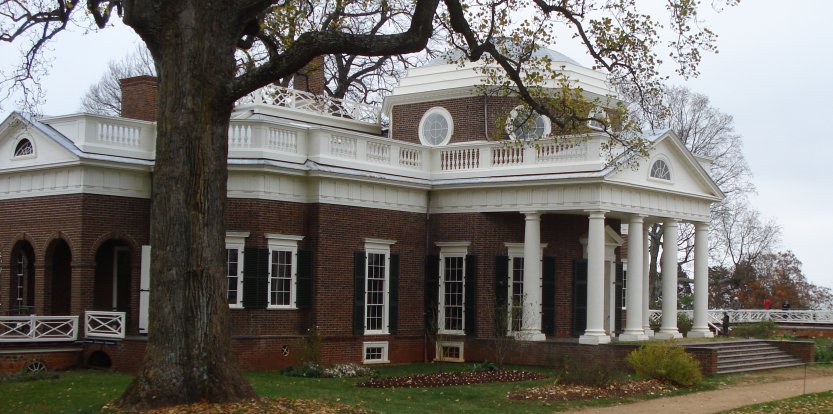
Thomas Jefferson was a remarkable guy. He thought deeply about almost everything and made the world a better place. On his tombstone he wanted to be remembered for founding the University of Virginia and authoring the statutes of religious freedom of Virginia the Declaration of Independence. Any one of those accomplishments would make him a great man. He didn’t even mention being president of the United States.
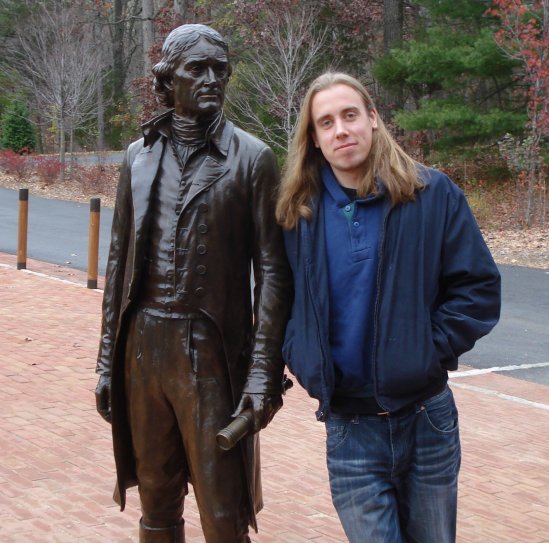
We first visited here in 1985. Chrissy was pregnant with Mariza and I remember thinking that it would be nice if our expected child could become part of this legacy by going to Thomas Jefferson’s university. She did. So besides his contributions to our freedom and prosperity, I have a very personal reason to thank Jefferson.
Monticello is owned and run by a private foundation that makes its money from ticket sales and donations. The foundation supports historians, archeologists and researchers in addition to maintaining the house and grounds.
Alex and I talked about the pros and cons of a private foundation. It seems like a place like Monticello should be government owned, but why? A private foundation is more flexible and can often do a better job. Many of our best American universities are private and they are the best in the world. A foundation works out just fine for Mr. Jefferson’s home.
Jefferson always considered himself a farmer. He grew tobacco and wheat as cash crops and produced vegetables, apples and other fruit for consumption on the farm. Like other plantations, Monticello was self-sufficient when possible. They made their own bricks from local clays. Carpenters from the estate made furniture from the wood of the local forests. Jefferson owned 5000 acres, which gave him a diverse landscape to draw from. Below is Jefferson’s vegetable garden. It is set up to take advantage of warming winter sun.
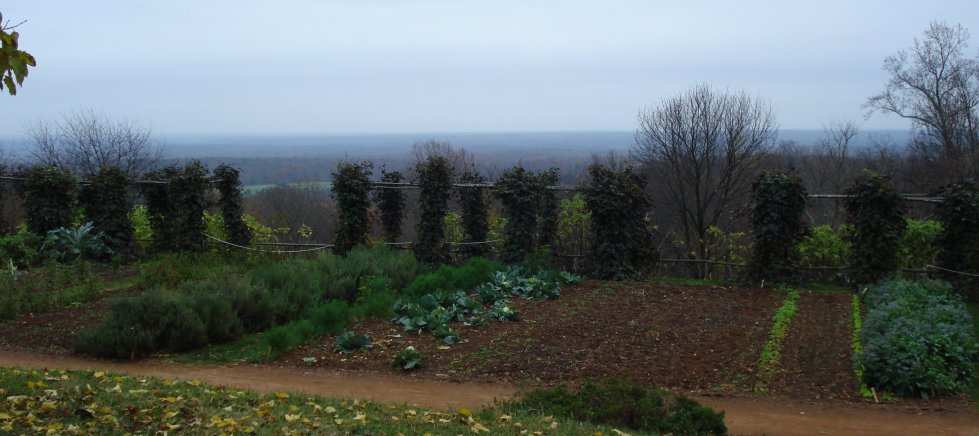
Jefferson was an active manager of his estate. Washington’s Mt Vernon actually turned a profit, not so Jefferson’s Monticello. The difference was top management. Washington didn’t have Jefferson’s intellect, but he had practical abilities. Jefferson was an idea man. And his house – and our country – is full of his ideas, but he was not a good businessman. He died deep in debt and his heirs had to sell Monticello.
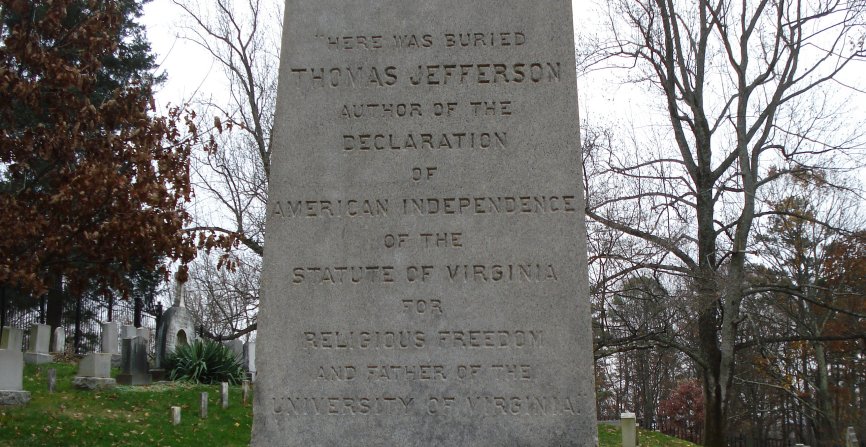
Of course, Jefferson didn’t do much of the real work. The paradox of Jefferson the hero of freedom is Jefferson the slave owner. Slavery had existed since the beginning of history, but by Jefferson’s time the Western world was beginning to see the moral contradictions of the practice. Jefferson shared the revulsion of slavery in theory, but couldn’t bring himself to take the practical and personal steps against it. I guess he was just a true intellectual in that respect and unfortunately remained a man of his times.
In any case, Jefferson’s contributions far outweigh the negatives of his personal life. All human being are flawed. They make their contributions based on what they do best, not what they do poorly.
We Americans were truly blessed during our founders generation. Washington, Jefferson, Franklin, Adams, Hamilton & Madison all were greats. But the remarkable thing is how their skills and even their personalities complemented each other, even when they fought and hated each other. Their differences created harmony and their joint efforts filled in for some serious individual flaws.
The American revolution is one of the few in world history that actually worked (i.e. didn’t end in a bloodbath followed by despotism). We can thank good luck & favorable geography. But the biggest factor was the moral authority, courage and intellect of our first leaders. We are still living off their legacy.
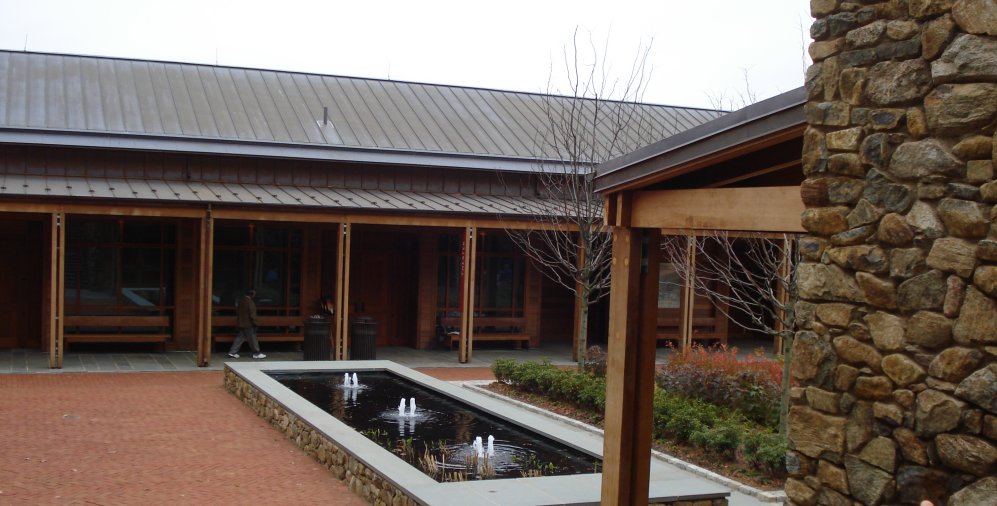
Above is the visitor’s center that opened last year. In the spirit of Thomas Jefferson, it takes advantage of natural forces and uses appropriate technology. This is a green building, earth sheltered, energy efficient and heated & cooled to a large extent by geotheromal energy. The wood and natural stone construction is simple, but elegant. I like it.
